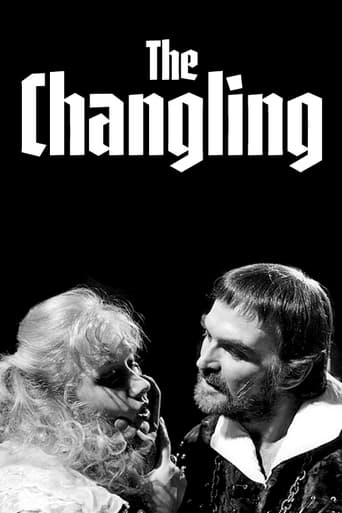
Sexual passion breeds violence in the Thomas Middleton and William Rowley written tale of a beautiful woman who falls in love with a sea-captain. Filmed with lush production values and at a leisurely, very British pace, Helen Mirren is riveting as Beatrice-Joanna, a young lass already torn by love and commitment.Beatrice-Joanna (Helen Mirren) is betrothed to Lord Alonzo de Piraquo (Malcolm Reynolds) but is in love with Alsemero (Brian Cox). She hires her father's manservant, De Flores (Stanley Baker), to kill Alonzo but after he has done so, she realises De Flores wants her as a reward.The Changeling was an instalment of the BBC's Play of the Month series and is a production for television of a 1622 Jacobean tragedy of the same name, written by Thomas Middleton and William Rowley.
... View MoreThe movie is currently not available onine


